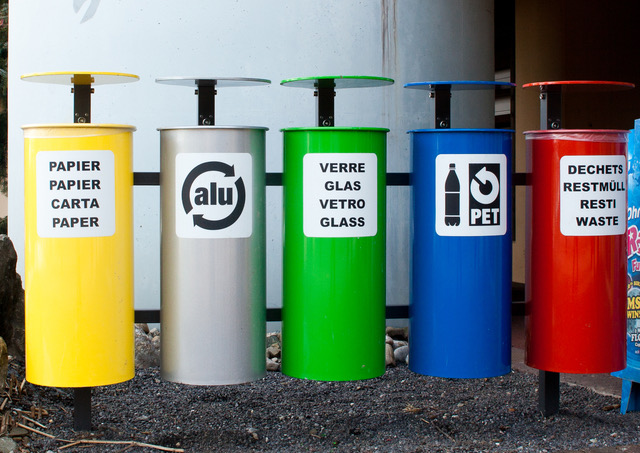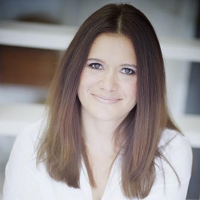The other day, my Dutch-American friend and I were talking about the vast differences between America and Europe.
My friend spent much of her childhood between Amsterdam and the United States. When she was in graduate school, she moved back to the Netherlands and lived there for a few years, went to Germany for a semester, traveled throughout Asia, and eventually came back to Germany and Amsterdam for another couple of years before returning to the United States. At the moment, she’s back in Utah.
I grew up entirely in the United States but for the last 10 years, have lived between France, Spain, Asia, and am currently in Germany. Together, we have a wide variety of cultural examples for which to draw topics for our regular conversations.
Recently, we were discussing how the United States handles trash versus how European countries handle trash. More to the point, we were discussing recycling in America.
Because the majority of our time has been spent between the United States and Europe, we were unofficially comparing cultural attitudes between the two. What follows are the major points of our conversation:
>> In Europe, recycling is a choice, but a choice with consequences. For example, if you buy a bottle of water at the gas station, the register will automatically add a “recycling refund deposit” to the price of the drink. So if the price says €1.00, the cashier will ask you for €1.25.
If you return the empty bottle to the register or an approved recycling center when you’re finished, you get your €0.25 back. You can also take the empty bottle to any of the automated deposit machines at local grocery stores for a coupon toward your purchase. If you throw it away, you’ve exercised your right not to recycle, but you’re out €0.25 and that adds up.
If you’re not willing to recycle, you’ll pay that little extra for the time and effort it takes to recycle on the back end—a trash collector will then have to separate paper from plastics and so forth to maintain a more green-conscious effort. Neither one of us could think of a similar scenario in the United States.
>> In Germany, the price you pay for non-recyclable waste pickup is determined by the amount of trash you generate. You can have as much recyclable material as you want, so there is a huge incentive to separate your paper, plastic, and glass from your regular trash. In addition, trash—non-recyclable waste—is only collected once a month. The recyclable materials, on the other hand, get picked up every other week, so there again it makes sense to separate the recyclable waste so that you don’t unnecessarily fill your trash bin.
Unlike in America, trash bags left to the side of the trash bin do not get picked up; neither does recycling that hasn’t been separated properly (like glass being thrown in the trash).
How do ordinary citizens know what’s recyclable, how to recycle it, and where it goes? Because everything goes into color coded bins and bags, and the residential waste removal companies are very clear about what’s allowed in each color.
In America, it’s the opposite—you have to pay to recycle and that right there is a disincentive. I should add this caveat: theoretically, you’re also paying to recycle in Europe (being charged the pfand or deposit ahead of time). And, there are trash taxes in Europe or the trash costs are factored into utilities called “nebenkosten” or side/extra costs, but the way the billing is presented is distinctly different. Recycling is a given, a straightforward priority for Europeans, so it’s already integrated in fees, taxes, and billing, whereas in the U.S., recycling feels like more of a burden because it’s not seamlessly built in to billing. It’s more of a hassle (you have to locate and request a recycling bin), and it comes with a separate bill, so people feel penalized for recycling rather than integrating into everyday priorities the way Europeans do.
>> In most public places in Europe, recycle bins are right next to the trash bins. In Germany, the public bins are separated by colors so they’re easily identifiable, and most stores will have a recycle bin at the door so that you can remove paper packaging and recycle it right away rather than taking it home.
For example, when I buy shoes, I leave the shoebox with the cashier and take only the shoes with me. I do this because I know the shoe store can recycle the box properly. In addition, it reduces the amount of personal waste I have to dispose of at home.
>> Most European stores will charge you for bags no matter what you buy: clothes, shoes, food, household items, you name it. Some stores don’t offer the option to buy bags so you have to arrive prepared and bring your own.
Nobody ever complains about this in any of the countries where I’ve lived, because they realize how much less waste they produce by not overusing or unnecessarily using plastic bags that often end up at the bottom of the ocean. When I visit the United States, I notice that they still offer free bags at most places and grocery stores will sometimes use double or triple plastic bags for a single item. Europeans would consider this wasteful and using more than you actually need. The key is pragmatic conscious living rather than a focus on sheer convenience.
>> The further you go from tourist areas (or areas with a heavy American presence like military communities) you’ll notice that “fast food” doesn’t really exist. If you want something to eat, first of all, it needs to be during normal meal times. In Europe, it is not uncommon to find restaurants closed between 2:00 to 5:00 p.m. because these are not considered standard eating times.
Second, you’re going to have to sit down at a table. In certain parts of Germany, “doggie bags” are a new thing and mostly cater to the Americans from cities with a military presence. The idea isn’t fully embraced, because it goes against the core belief that you should only order what you can eat. Even if you go to a McDonald’s or Burger King, you’ll notice missing trash bins. Instead, they have places where you insert your used trays and dining-ware. In fact, they won’t give you more than a single napkin and no condiments unless you pay for them (each packet). Again, use what is needed and avoid excess that ends up in the trash anyway.
>> Countries like Germany and Spain, which are known for their love of cultural or seasonal festivals, usually use real dishes, silverware, and glasses for your food and drinks. You’ll get charged a hefty deposit when you order, but it will happily be returned to you when you return the dining accouterments.
~
It’s worth mentioning that the “green conscious” mentality seems more important to Europeans at large, because they feel more of a responsibility to preserve the earth and they often think about future generations (a collective attitude) rather than the here and now and more individualistic sentiments that are typically found in the U.S.
When I visit America, I notice that there is an incredible amount of waste created without anyone asking or even being aware.
Our love of convenience allows us to eat and run so that we have cup holders in cars (this is an option only for new cars in Germany), practically everything is portable, and portion sizes are enormous! Portion sizes are important because in addition to helping us gain weight, we either end up throwing out the rest or taking it home (in a plastic or Styrofoam container). In America, you can take home the last two bites of a hamburger without any shame, because it aligns with our value system: we have the right to want what we want when we want it.
So, what’s the answer here?
Changing a culture is hard work, and if you live in a place that has poor water, for example, drinking out of the tap to avoid bottled water could be harmful to your health. So what do we do? Well, we can take a few tips from European culture.
>> Find out what the local waste laws in your community are and how hard it would be to change them. Lots of people will groan about it, but Mother Nature will thank you and so will future generations.
>> If recycling seems near impossible for you, then reuse instead. I used to know someone who bought large, industrial sized bottles of shampoo at Sally’s Beauty Supply and would refill old plastic shampoo bottles to use in her shower so that she didn’t have to have the big jug taking up space. Let’s learn to be creative with what we have and avoid disposable items when we can reuse something instead. We need to start thinking about what we can do to not contribute any more waste to the pile.
>> Encourage local restaurants to focus on in-house dining and if you must take something to go, get used to having your own containers. Or, if that doesn’t seem reasonable, we can make a point to minimize food waste by ordering less up front so there isn’t anything to take home.
>> Educate yourself. Years ago, I was diving off the coast of Rapa Nui and my instructor was sharing how lucky we were, because those waters were too remote to be affected by the trash and sewage dumped at sea from cruise ships. Since then, I’ve found conflicting evidence on this. I err on the side of caution and avoid cruises and recommend to my friends that they do too.
>> Take your own shopping bag or basket whenever you intend to go out and make a purchase. In addition to being more mindful about what we spend our money on, we can do our part by not contributing more plastic bags to the waste that already exists. Purchase a sturdy, collapsible bag or basket that you can take with you when you shop. I carry a wicker basket in my car and not only does it help keep me from over-spending, I use it for many other things aside from shopping.
All of this might seem impossible or inconvenient, and we might think we shouldn’t bother because one person won’t make a difference, but I disagree.
To me, this is what the quote (often misattributed to Ghandi) meant when it says: “Be the change we want to see in the world.”
Once you begin to change how you view waste, you’ll find that like-minded people begin to appear in your life. You might think, “Yeah, well, that’s still not many people compared to the entire United States.” Before we let those thoughts take over, let’s remind ourselves of the famous Margaret Mead quote:
“Never doubt that a small group of thoughtful, committed citizens can change the world; indeed, it’s the only thing that ever has.”
Change begins with you and so does the long-term preservation of our world and resources.
~
Author: Ruth Cuevas
Image: Ludovic Péron/Wikimedia Commons; incommunicado/Flickr
Editor: Catherine Monkman
Copy & Social Editor: Kenni Linden
 Share on bsky
Share on bsky






Read 31 comments and reply